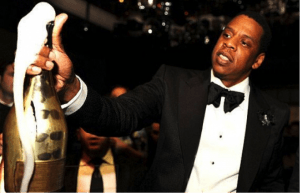On October 14th, 2015, Jay-Z and Timbaland appeared in a Los Angeles federal court for copyright infringement regarding a sample used in their 1999 hit, Big Pimpin. This court appearance marked the beginning of the end of an eight-year legal battle, which began in 2007. Osama Ahmed Fahmy filed an initial complaint alleging that Big Pimpin sampled the flute melody from a 1957 Egyptian song created by Baligh Hamdi, Fahmy’s uncle, without permission.[1] Fahmy alleges that Jay-Z and Timbaland should have asked Hamdi’s family for permission, and that the family had the right to deny granting permission due to the themes of Big Pimpin altering the song and in turn, violating Hamdi’s moral rights.[2] Moral rights refer to maintaining the integrity of the work and are common outside the United States.[3] Moral rights trigger a requirement to request the permission of the author or his heirs for the use of their work.[4] Timbaland, who produced Big Pimpin, claimed he believed Hamdi’s melody to be royalty free.[5] Once Timbaland discovered the melody was not royalty free, he paid $100,000 to EMI Music Arabia, who controlled licensing for Hamdi’s song outside of Egypt, for the license.[6]
However, in a swift turn events, Judge Christina Snyder dismissed the case on October 22, 2015 because Fahmy lacked standing to bring this claim forward on behalf of his deceased uncle.[7] Very little detail was provided for the dismissal except for Judge Snyder stating that Fahmy signed away his economic rights to the song in 2002, and could not assert moral rights to his uncle’s song outside of Egypt.[8]
Big Pimpin is not the first instance where the Western music industry has engaged in license-free sampling of Middle Eastern music. Some instances include Madonna’s use of “Lebanese singer Fairuz singing Christian liturgy on Erotica”, and the Chemical Brothers sampling Najat Aatabou, a Moroccan singer, on their 2005 song Galvanize.[9] Despite the frequent use of sampling, it is very rare for cases involving media property, such as music and movies, to reach the trial stage and the entertainment industry was looking to this case with bated breath as it slowly approached trial.[10] The potential for Big Pimpin’ to reach trial is reminiscent of a 2013 trial that found Robin Thicke and Pharrell Williams’ “Blurred Lines” infringed on a Marvin Gaye hit record, “Got to Give It Up”. The court granted Marvin Gaye’s children upward of $5 million.[11] While the cases of Big Pimpin and Blurred Lines present different scenarios and holdings, there is likely to be a push towards record companies seeking licenses and paying increased royalties upfront.[12] In an attempt to avoid litigation or potential litigation in the future, record company’s attitudes towards sampling is likely to change in the near future.

